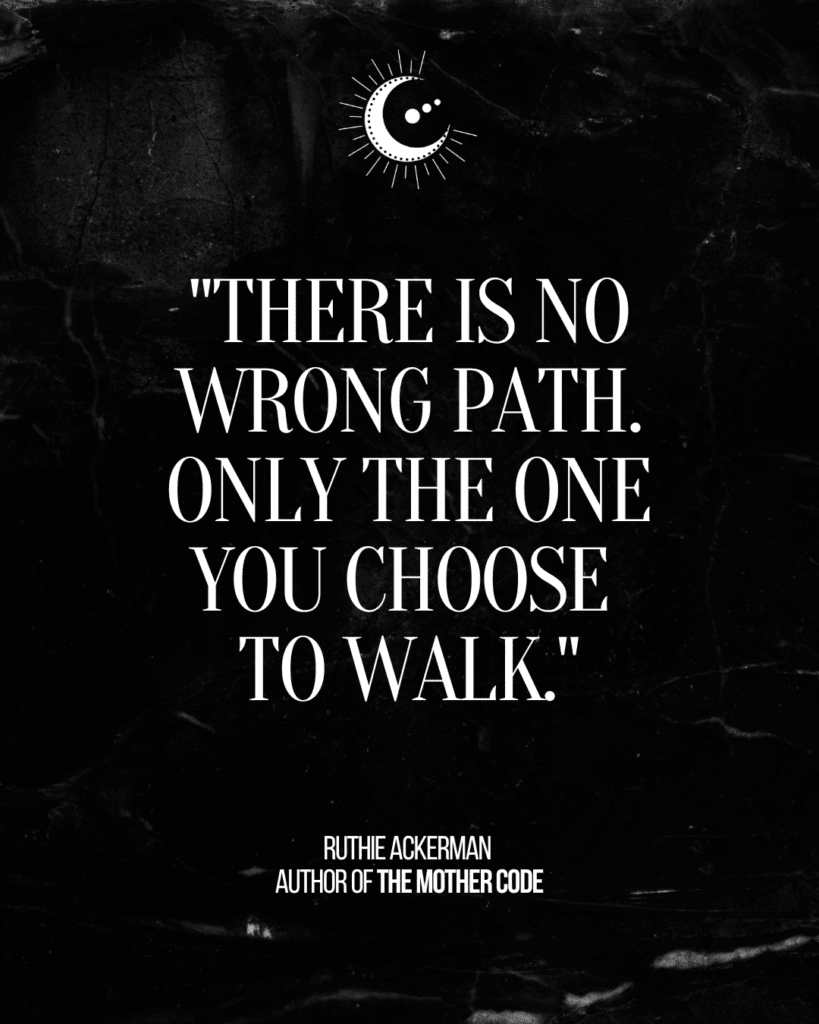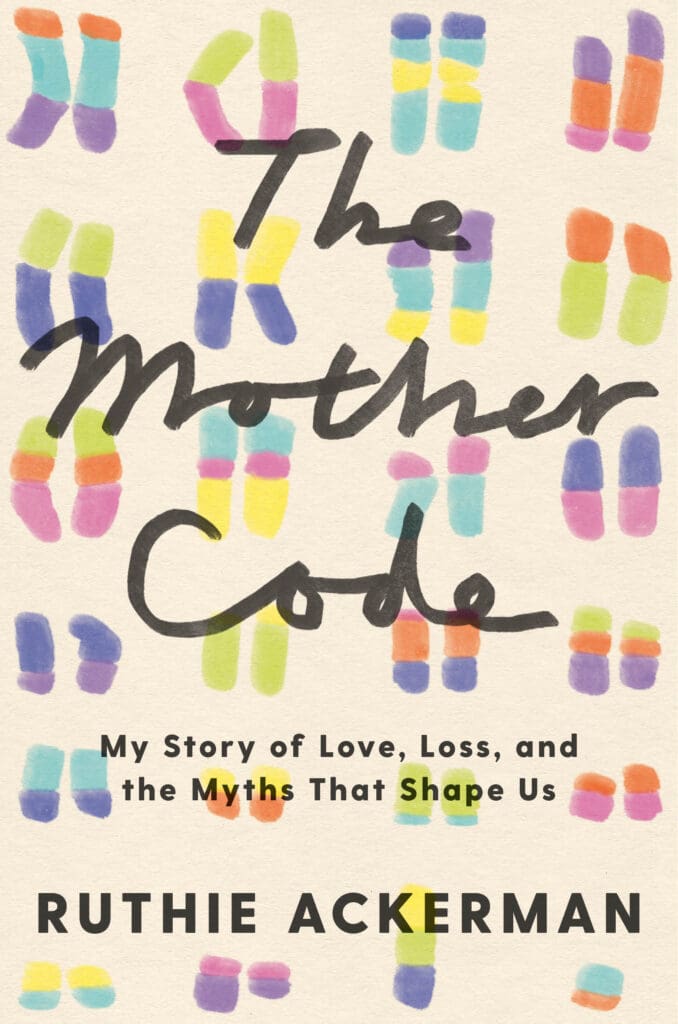The Motherhood Code We Are Meant to Rewrite
Motherhood. A word so loaded it can crack open the deepest parts of our identity—or bury them altogether. It’s a role often framed as destiny, duty, or sacrifice, carrying centuries of assumptions about what it should look like, feel like, and mean. Society hands us a blueprint early: the mother as selfless, unwavering, nurturing to the point of invisibility.
But what happens when your experience of motherhood—or your desire for it—doesn’t fit neatly into that mold? What if the very stories you’ve been told about what it means to mother—or be mothered—are tangled, messy, incomplete?
In The Mother Code, Ruthie Ackerman dives into this sacred, complicated terrain with fearless honesty. Through her own journey, she invites us to untangle the inherited narratives about motherhood, identity, and womanhood—and to ask ourselves one profound question: What if the life you’re meant to live looks different from the one you were told to want?
“I believed this curse of maternal abandonment would make me a bad mother and therefore I shouldn’t have children,” Ruthie shares. “It was only in researching my family—digging through census data and marriage and death records—that I learned the family mythology I grew up with was made up of half-truths and conjecture.”
Ruthie’s work reminds us that there is no one path to fulfillment. There is no single blueprint for love, caretaking, or creating a meaningful life. And most importantly: we have the power to rewrite the codes that have shaped us.
The Myths We Inherit—and the Stories We Choose to Rewrite
The phrase “Mother Code” sounds scientific—like something coded into our very DNA. And in some ways, it is.
Psychologists have long recognized that narratives about identity, caregiving, and trauma can echo through generations. Our family stories—and the myths we build around them—shape our most intimate choices.
The “mother code” was a warning: the belief that she was destined to repeat a cycle of maternal abandonment. But a deep dive into family history revealed a truth far more complicated—and liberating.
“The narrative I’d based my most personal decisions on may not have been true,” she reflects. “There are so many ways to have a good life outside of—and including—marriage and motherhood. Knowing that our own ‘mother codes’ weave a beautiful tapestry is the antidote to a society that claims that women can either be trad wives or childless cat ladies.”
When Ambivalence Is the Answer
In a culture obsessed with certainty, Ruthie’s honesty feels almost radical: she didn’t have a “hell yes” moment about motherhood.
“When my therapist asked how badly I wanted a baby, my answer was 55%,” Ruthie shares. “I thought I needed to be all-in to be a good mother.“
But what she discovered is a truth backed by psychology: maternal ambivalence is not a flaw—it’s part of the human experience. True motherhood, she realized, isn’t about a singular moment of knowing. It’s built over time, through commitment, caretaking, and daily acts of love.
“Maternal ambivalence is the norm,” she reminds us. “I never had a HELL YES moment about wanting to be a mother until after I had my daughter. It was only through the caretaking and commitment it took to nurture her that I became a mother.”
Stillness, Forgiveness, and the Radical Act of Self-Redefinition
Stillness didn’t come easily for Ruthie. But through writing—and through reckoning with the real humanity of her family—she learned that healing wasn’t about erasing the past. It was about expanding it.
“I needed to get to a place where I no longer saw myself—and those around me—as monsters,” she says. “I had to find empathy for every person in my story. Including myself.”
Her mantra now? You are not the victim of your life. You have agency—even when it feels out of reach.

Who says you have to get married?
Who says motherhood should look one way?
Who says you have to choose between motherhood and your dreams?
“There are so many ways to have a good life,” Ruthie reminds us. “The most important thing is that it’s your life.”
Writing As a Ritual of Healing
“I don’t hear my own voice unless I’m writing,” Ruthie says. For her, writing became less about catharsis and more about connection—to herself, to her lineage, and to the complicated realities she carried.
Science supports what Ruthie instinctively knew: expressive writing has been shown to reduce stress, improve immune function, and foster emotional resilience. Seeing her words laid bare allowed her to process what was too tangled to sort through otherwise. “Once my words are exposed to air, I can process them,” she explains. “That’s where the healing begins.”
In the end, the most powerful story you will ever tell is the one you choose to write for yourself. It won’t come from old myths. It won’t be found in timelines or templates. It will be built from your own stillness, your own questions, your own hard-won knowing.
“Stillness had never been my friend before,” Ruthie admits. “But stillness and reflection were the only way I could hear my truest desires. And the only time I’ve found that stillness is when I’m writing.”
The Mother Code is more than a memoir—it’s a mirror, a permission slip, and a quiet revolution. Ruthie Ackerman reminds us that healing isn’t about fitting into the stories we’ve inherited. It’s about rewriting them in a way that feels truer, freer, and more fully alive.
“There is no wrong path,” Ruthie affirms. “Only the one you’re brave enough to create for yourself.”
For anyone who’s ever questioned the rules they were taught to follow, The Mother Code offers a new way forward—one where the life you create is entirely, unapologetically your own.
